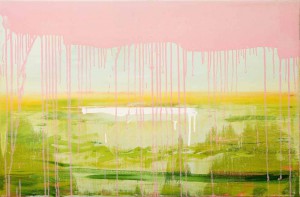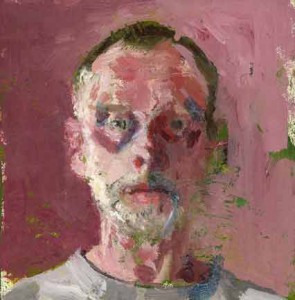Thirty Years of Beauty
Clark art instructor Stephen Hayes is having a 30-year retrospective at Lewis & Clark College’s Hoffman Gallery of Contemporary Art. The show opened September 10 and runs through December 15.
“I have admired Stephen’s work since I met him more than 20 years ago, when I was the director of Maryhill Museum and we had a small exhibition of Stephen’s work,” says Hoffman Gallery director and curator Linda Tesner. “Since then I’ve made sure to follow his career. He is a fantastic painter and his work has only become more and more interesting. I love that he is able to capture the spirit of place without making a slavish likeness; it is as if he is able to evoke the landscape as much as paint it.”
“Stephen is the best kind of instructor at Clark, with tons of real-world experience, fabulous skills, and the passion to share it all with his students,” says Clark art department chair Lisa Conway. “Stephen is a consummate professional, and a virtual icon among West Coast painters. The Hoffman Gallery at Lewis & Clark is a prestigious institution, and it is heartening to see a great artist get this level of respect and recognition.”
Hayes began teaching at Clark about two years ago after he gave a presentation as part of the Archer Gallery’s Clark Art Talks. Members of the Art Department faculty approached him after his lecture to ask if he would be interested in teaching at the college. Hayes says that working with Clark students in classes like Drawing I and Two-Dimensional Design helps him examine his own artistic process, as well as that of his students.
“Teaching always keeps you reminded that you are in a process yourself,” he says. “When you have to explain something to someone who has no idea what you’re talking about, that really forces you to establish clarity for yourself. That in turn has an impact when you enter the studio: You have more clarity.”
Hayes sounds humbled by having a gallery focus on his entire body of work. “It’s pretty awesome, obviously,” he says. “One doesn’t get this opportunity very often. … It’s fantastic to be able to look back and to see both the continuity and the changes in direction along the years.”
Hayes says he doesn’t plan to tell his students about the show. “There are posters around, so they may well find out about it,” he says. “But I’m not making them take a special field trip or anything.”
Images courtesy of the Hoffman Gallery

